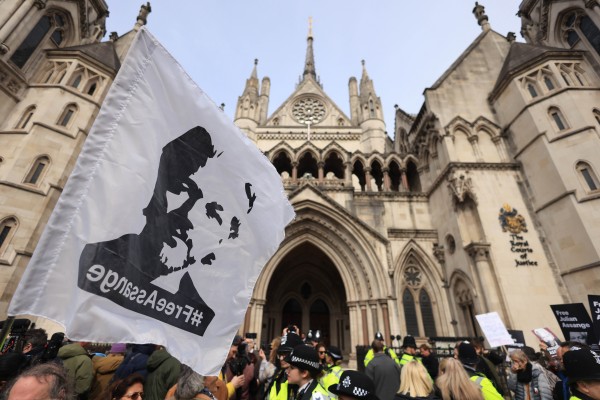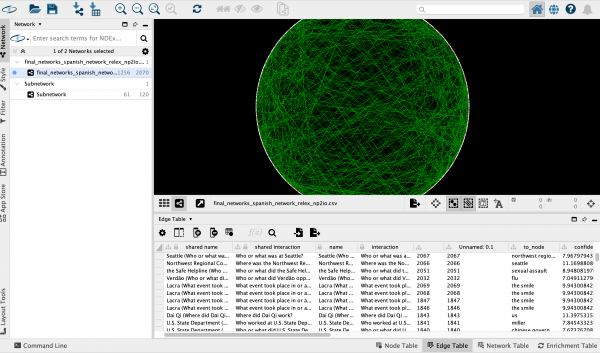The International Press Institute is concerned about the recent hacking of journalists’ and news outlets’ Twitter accounts, both in Venezuela and in the United States.
On 3 September, three critical Venezuelan journalists, three columnists and five opposition activists were unable to access their Email and Twitter accounts because their passwords had been stolen, EFE reported.
A hacker group calling itself N33 claimed responsibility and said the attack was not ordered by the government. “Our only motivation was the illegitimate use of Twitter under the aegis of freedom of expression,” they wrote in a statement which was read on a state television channel.
“No one will stop us in the effort to … take revenge on anyone who attacks the illness of the President and the integrity of institutions”, the statement said [Venezuelan President Hugo Chávez recently underwent chemotherapy treatment for cancer]. The group, apparently speaking in support of Chávez, claimed that its victims had a total of 500.000 Twitter followers and used their accounts as a source of hate and division in the country.
Journalists Berenice Gómez, Ibéyise Pacheco and Leonardo Padrón were affected, as were humorist and columnist Laureano Marquez, politician and columnist Eduardo Semtei, social activist and columnist Jesús Torrealba, and military analyst Rocío San Miguel.
In an interview with the local El Tiempo newspaper, the hackers promised new attacks and named Alberto Federico Ravell, former director of the opposition television news channel Globovisión and current editor of LaPatilla.com, as their main target: “the jewel of the crown.” Ravell told IPI: “I have always been a political target for President Chávez. What I have done after the recent events is change all my passwords.”
Berenice Gómez told IPI that she had to open a new Twitter account, like most of the other victims. In one week her new account already counted 13.000 followers, but she was still trying to recover the 182,000 she had before. Meanwhile, her hacked account was given a new name, began to post pro-Chávez messages and lost around 30.000 followers.
In Gómez’ case, the hackers called her, recorded the conversation and then posted it on the Internet. “The information you have here is dirty,” the hacker said on the phone. “You have intelligence information. That is illegal.” When she denied this, and said she had nothing to be sorry about, he called her a liar and told her that they would publish the information. He said he intended to give her the account back, but after the conversation ended he did not do so.
“They were trying to force a change in my reporting,” Gomez told IPI. “They said the information I had in my accounts would cause me problems, but what scares me now is that they know who gives me information. They could take advantage of that and intimidate, prosecute or even kill my sources. After being a journalist for 30 years, for me it is sacred to protect my sources.”
She added that she was professionally received when she requested an investigation at the Scientific, Penal and Criminal Investigative institution. She gave them the names and telephone numbers of the alleged hackers. Meanwhile, she contacted Google and managed to block her Email account, but she has not received any answer from Twitter’s headquarters.
Silvia Allegret, president of the Venezuelan National Guild of Journalists, told IPI that confidentiality, honour and reputation should be respected, as enshrined in the national Constitution and in the Universal Declaration of Human Rights: “It is striking that the government has not given a clear response to such actions,” she said. “Instead, the state channel broadcast a statement from the hackers and recordings of telephone conversations of important people in the country. This is extremely serious.”
Allegret expressed regret for the fact that because of the hacking, the victims’ relationship with sources was damaged, as was their ability to gather information. In addition, their followers no longer have access to their news. “Again, freedom of expression and information is being violated,” she stated.
IPI Press Freedom & Communications Manager Anthony Mills called for an investigation and requested that those responsible for the hacking be brought to justice. He said: “No one should be allowed to use Twitter to intimidate journalists. We are extremely concerned at the fact that the hackers appear to have obtained information about the journalists’ sources. Reporters have the right and duty to protect sources; these acts endanger them.”
In a separate incident, on 9 September hackers calling themselves The Script Kiddies accessed the NBC News Twitter account and posted false messages reporting an aeroplane attack at Ground Zero in New York, the Los Angeles Times reported.
“Breaking news! Ground Zero has just been attacked. Flight 5736 has crashed into the site, suspected hijacking. More as the story develops”, was the first tweet. Three more messages followed, including one saying it was not a joke and another one taking responsibility for the hacking. Twitter cancelled the hackers’ account and afterwards gave it back to NBC.
Meanwhile, in Mexico, the bodies of two young people were found hanging from a bridge in the border city of Nuevo Laredo, the Knight Center for Journalism reported this week. “This is going to happen to all of those posting silly things on the Internet”, was written on a poster close to the bodies, as a warning for those citizens who use social media to report on crime. The message was signed by the Los Zetas criminal gang.


